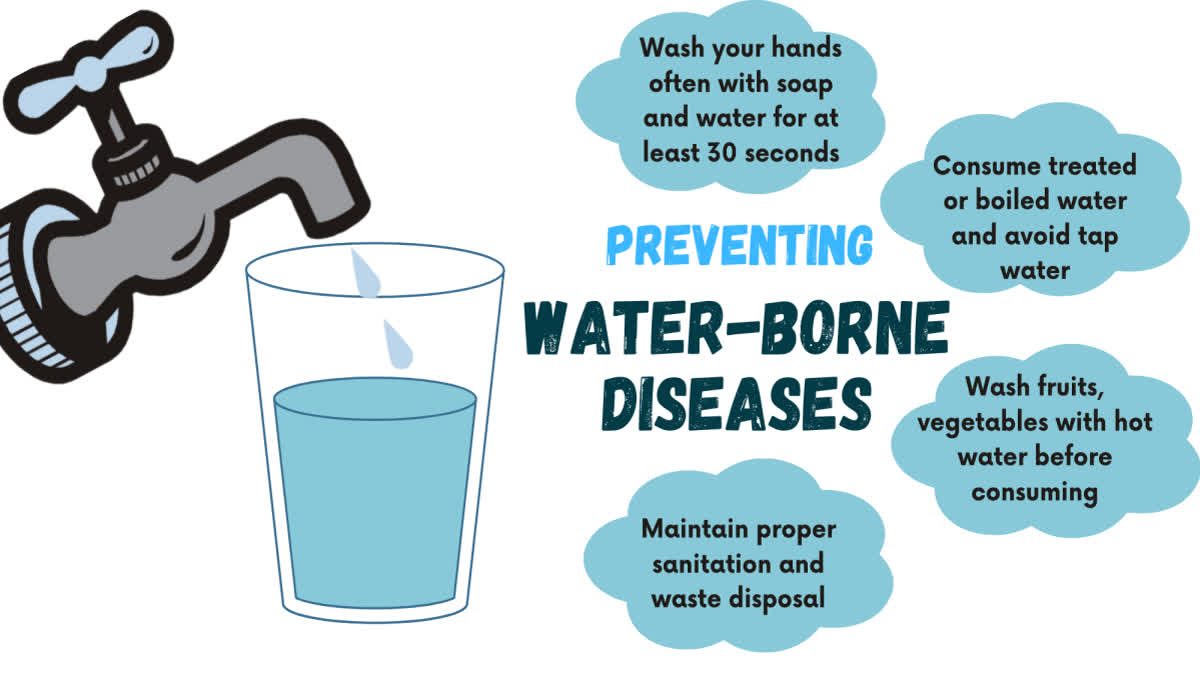Hyderabad: Waterborne illnesses stem from the consumption or contact with contaminated water sources, leading to the transmission of harmful pathogens. These diseases are often contracted through the use of infected water for drinking, food preparation, cleaning, and other activities. Notable examples of waterborne diseases encompass cholera, dysentery, giardiasis, and hepatitis A.
The severity of waterborne diseases spans a spectrum, ranging from mild discomfort to severe organ damage. Consequently, it is imperative for individuals to adopt measures to thwart these illnesses. Here are some effective strategies to avert falling victim to waterborne diseases:
Opt for Purified Water: To ensure safety, it is advisable to exclusively consume treated or boiled water, especially in areas where tap water quality is dubious.
Prioritize Hand Hygiene: Regularly and thoroughly wash hands with soap and clean water for at least 30 seconds, particularly before and after eating, as well as after using the restroom.
Embrace Hygienic Bathing Practices: Refrain from bathing in untreated water bodies that may harbor harmful microbes. If unavoidable, individuals should prevent water from entering their mouth, nose, or eyes to avoid ingestion of contaminants.
Exercise Care in Food Handling: Thoroughly wash fruits, vegetables, and other edibles with hot water, and cook foods using clean water to avert potential contamination.
